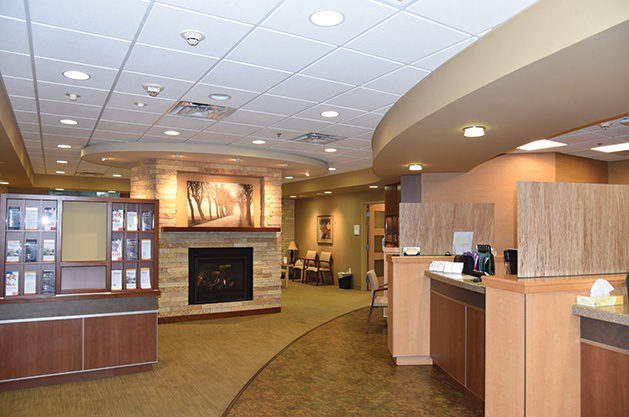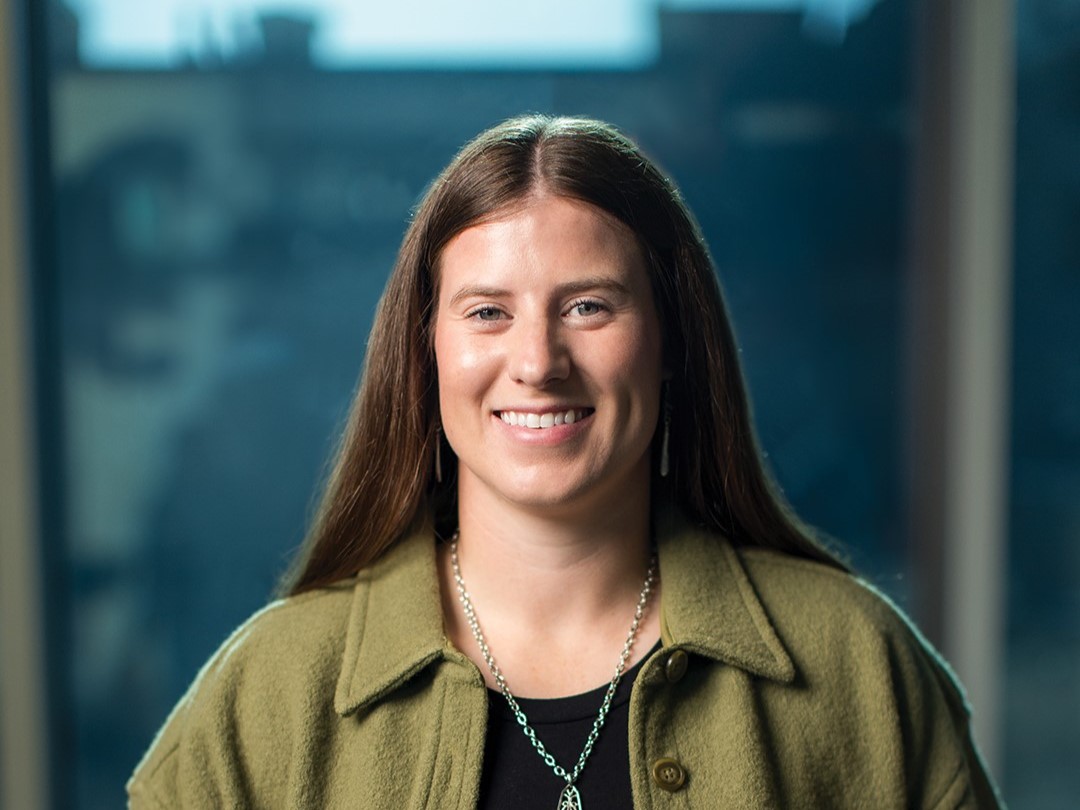
The medical community strives to find new ways to treat pain. Photo: Maple Grove Medical Center
The Comprehensive Pain Clinic in Maple Grove takes multiple approaches to pain management.
A New Maple Grove clinic offers treatments to help patients manage or treat their pain. We sat down with two of its physicians, Mark Yamaguchi, M.D., and Tunde Adekola, M.D., who both work at North Memorial’s Comprehensive Pain Management Clinic, and psychologist Ben Lexau, Psy.D., who works in mental health at North Memorial in Robbinsdale and works closely with the pain clinic.
Maple Grove Magazine: How does the opioid epidemic affect your day-to-day practice?
Dr. Adekola: We see patients, who have tried different classes of medications and resorted to opioids as a last resort, often needing to escalate opioid doses over time because they developed tolerance to the starting dose. They may end up with two, three or four times the original opioid dose. I typically see patients coming in because primary care doctors, at that point, are concerned about addiction and dependence. They’re looking for ways to treat the patient’s pain outside of opioid therapy or ways to taper down the patient safely.
MPG: How do you encourage them to try other methods of pain management?
Dr. Adekola: I want to let the patient know it’s a collaborative effort between me and their referring provider. The opioids will not be discontinued abruptly. But then there are instances where we need to stop the opioids right away if we feel the risk of leaving the patients on opioids, even while initiating a tapered dose, we feel the risk outweighs the benefit. The instances would be a patient, who has concurrent opioid abuse with substance abuse, such as cocaine, methamphetamine use, history of illicit drug use on the streets … There’s ways of doing that with minimal distress.
MPG: What do you say to encourage people to come in for help?
Dr. Adekola: Pain and opioid addiction dependence is non-discriminatory. By and large, it really doesn’t matter what class you belong to. We are here to support you.
MPG: What about the psychological aspect of pain?
Dr. Adekola: We offer pain psychology because of the bio-psycho-social model of pain that we subscribe to. Pain is interpreted, registers in the brain. Stress, depression, anxiety often amplifies perception, so we want to make sure that we address those components of pain amplification.
Lexau: Because chronic pain is sensitive to stress, anything that contributes to stress is going to contribute to pain. We teach fundamental relaxation skills: how a patient can calm themselves [and] how they can bring down the intensity of their nervous system to have better control of pain. I mainly focus on biofeedback … The idea of addressing pain from multiple perspectives that can include relations with family, the way they think about themselves and their future. It can include how do they think of themselves or their identity, especially after some major illness or injury that caused the pain, [which] can disrupt a person’s life significantly.
MPG: What other treatments are available?
Dr. Adekola: We offer what we call “comprehensive pain management.” We offer interventional pain management, which targets the pain generators in the body into the neck, the low back into the abdomen. The way we target this is by using X-ray imagery to locate the source of pain. We use injections targeting those nerves what we call radiofrequency ablation, cauterizing the pain causing nerves. Abdominal pain is one we see, as well. We use ultrasound guided procedures to locate certain nerves in the abdomen or in the limbs and do appropriate injections, targeting those nerves to reduce or eliminate pain. We also alter the body’s perception of pain by implanting devices that dull pain perception, such as spinal cord stimulators.
MPG: Spinal cord stimulators are an advanced treatment.
Dr. Yamaguchi: It provides pain relief for patients, who have radicular pain or pain through their back and legs. Think of it as a pacemaker for pain that can last up to 10 years. The implanted device is about the size of a matchbox. It’s implanted under the skin … It’s a much longer option for patients, who have failed conservative care.
The Comprehensive Pain Clinic also offers physical and aquatic therapy and acupuncture.
Comprehensive Pain Clinic
Maple Grove Medical Center
9825 Hospital Drive Suite 10
763.581.3680






















